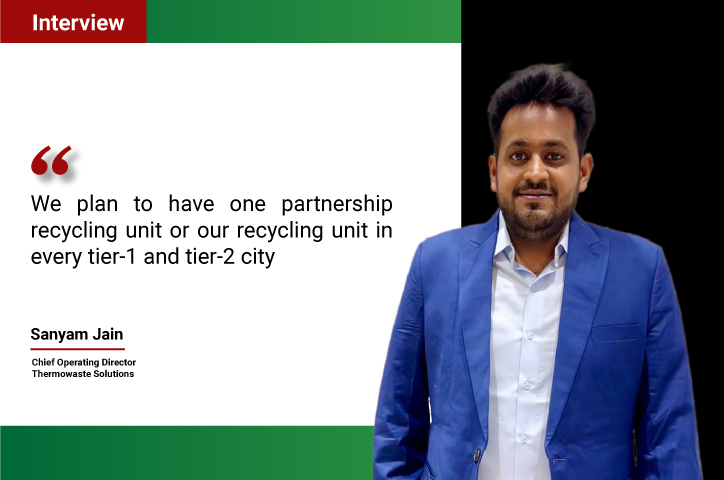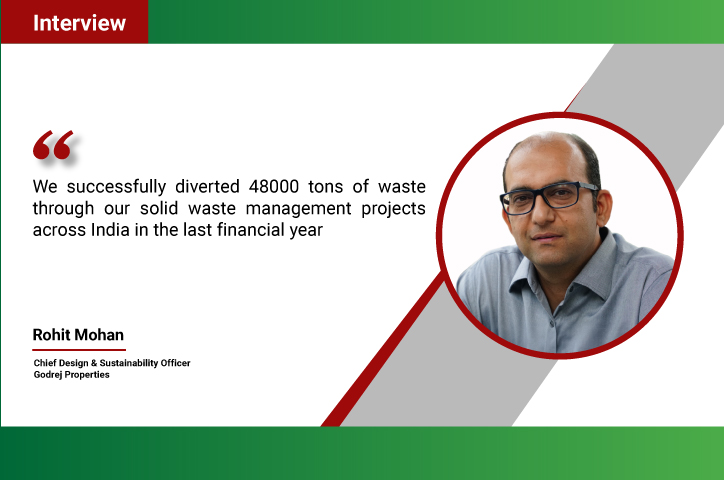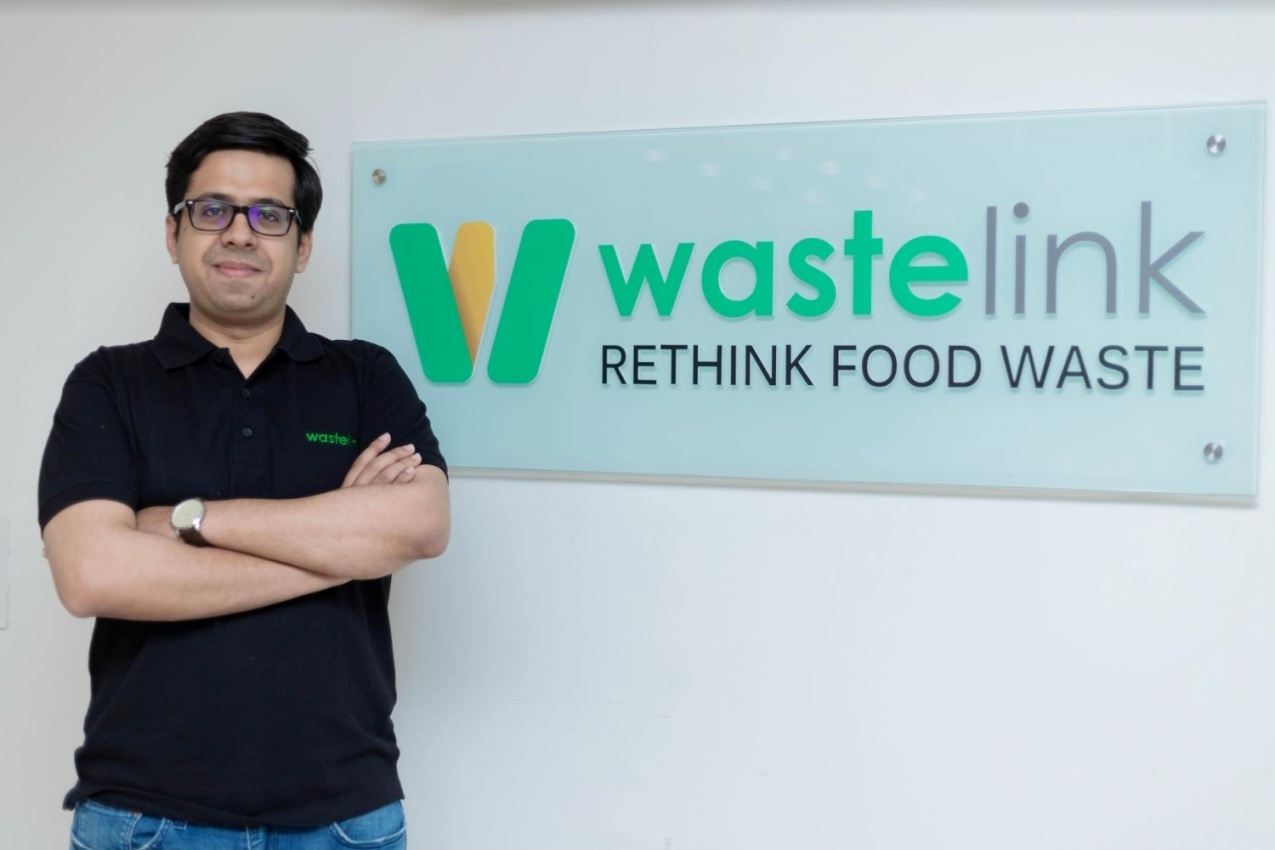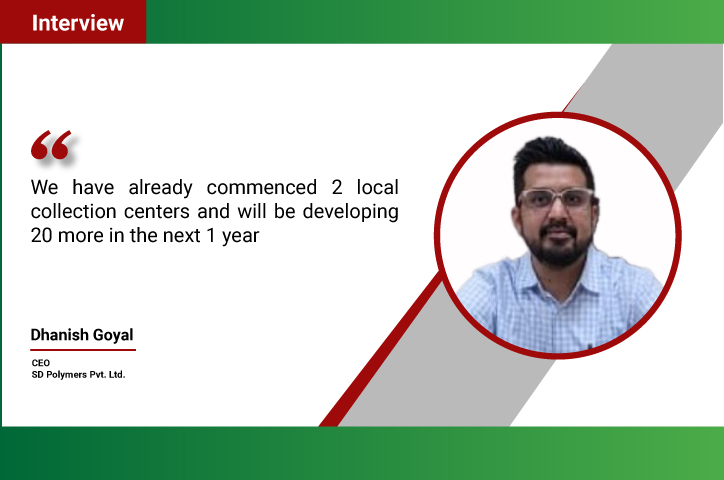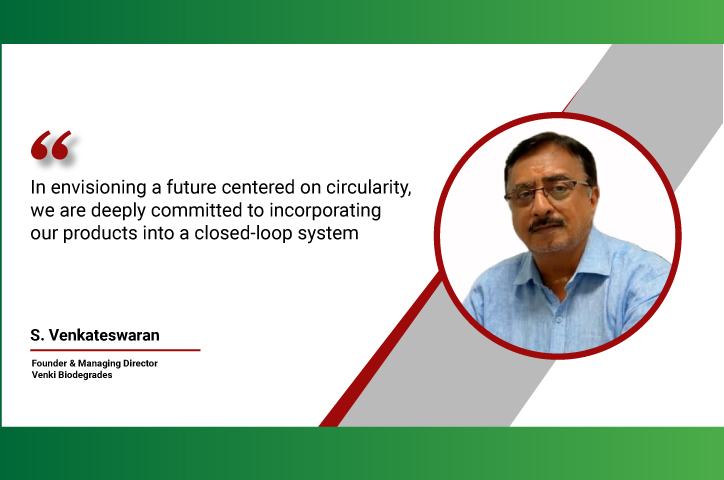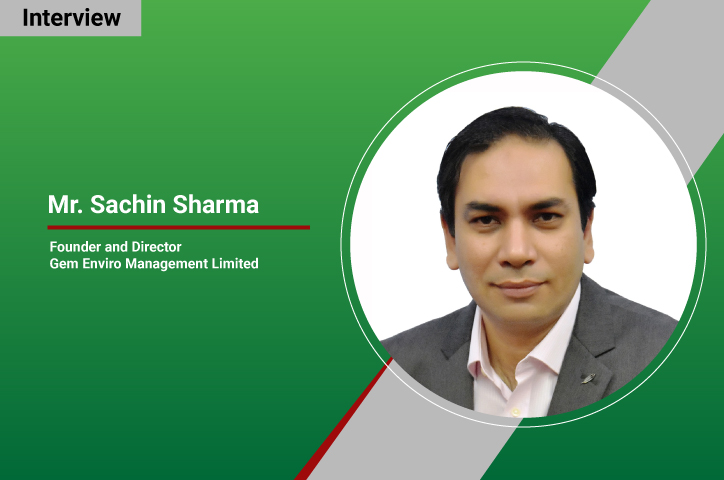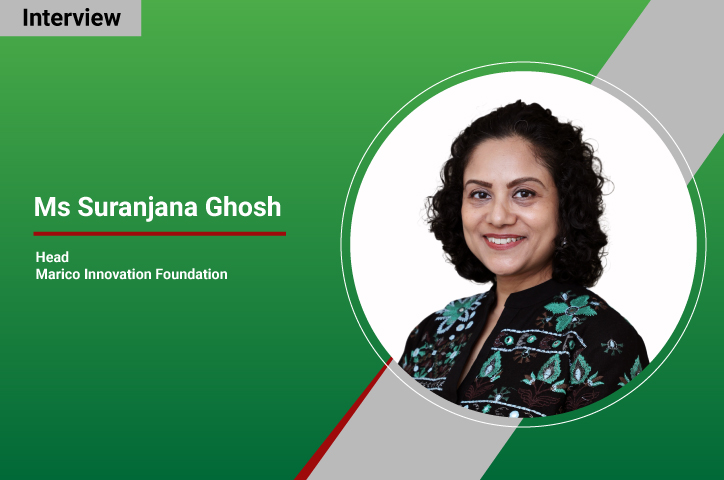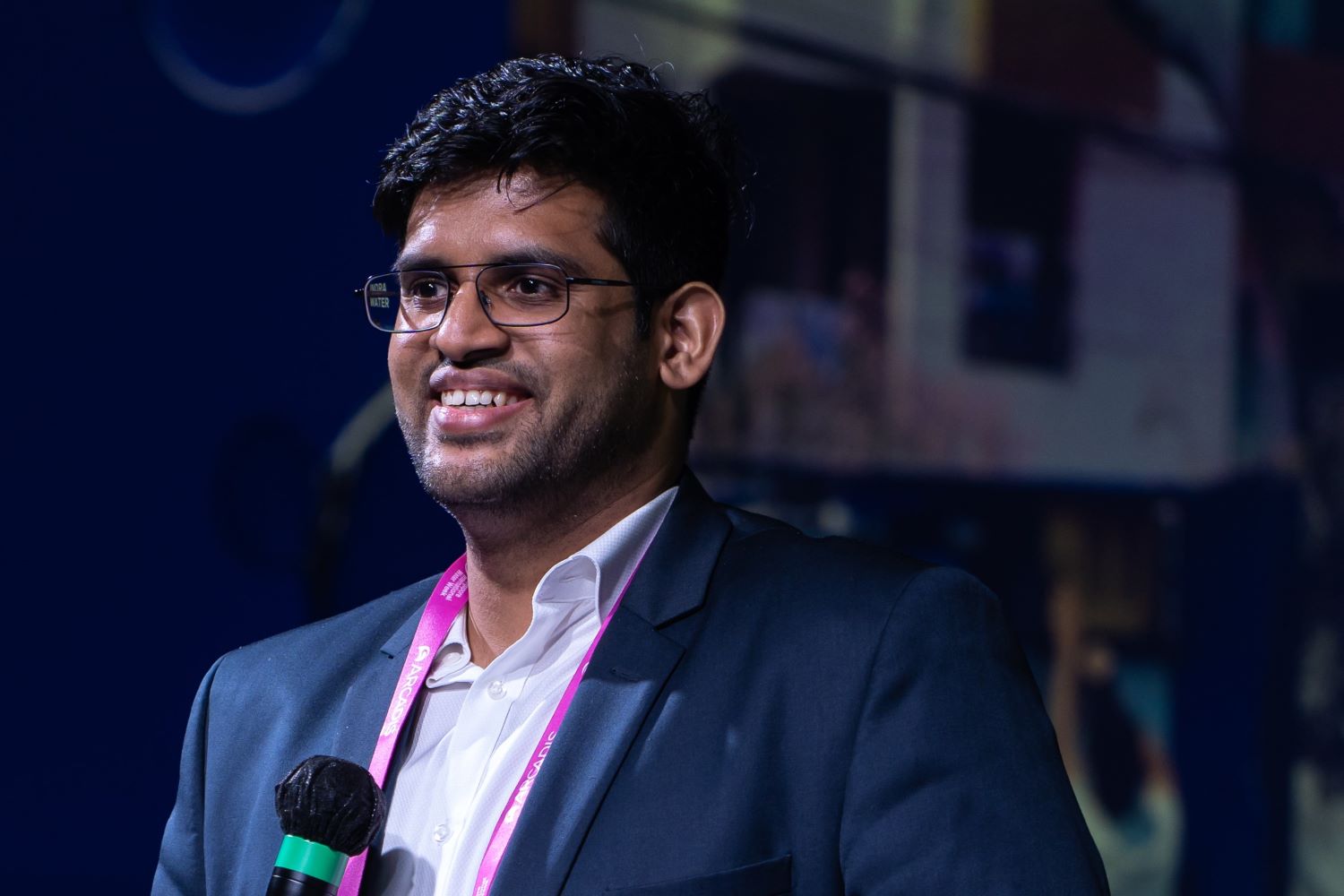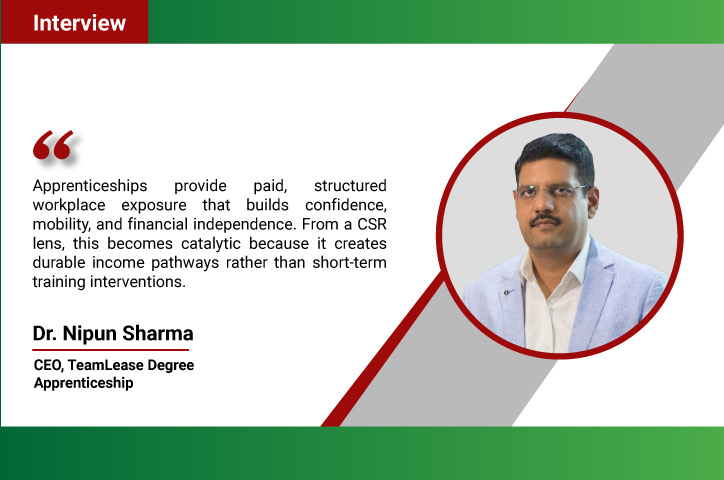With a strategic vision set on integrating recycled plastic granules into the production processes of major corporations, Thermowaste Solutions, a leading innovator in the waste management and recycling industry, is poised to revolutionize how industries approach sustainability. With a forward-thinking approach and a strong focus on creating new markets for recycled materials, the company is not only addressing current environmental challenges but also paving the way for a greener future.
In this exclusive interview with TheCSRUniverse, Sanyam Jain, Chief Operating Director, shares insights into the cutting-edge technologies his company employs, the importance of research and development, and the pivotal role of community engagement in achieving their ambitious goals. He delves into the intricacies of Thermowaste Solutions’ operations, highlighting their state-of-the-art dual screw mechanical recycling machines and innovative software solutions that streamline waste management. He emphasizes the company’s commitment to sustainability, demonstrated through its use of electronic vehicles for waste collection and ongoing discussions with solar panel vendors.
Scroll down to read the full interview:
Q. Can you please explain the key technologies that Thermowaste Solutions employs to manage and recycle waste more effectively?
A. Thermowaste Solutions optimizes its operations by harnessing technology on multiple fronts. As a recycling company, the foremost job is to recycle waste into quality products. We employ the latest dual screw mechanical recycling state of art machines to convert plastic and thermocol scrap into quality recycled plastic granules which are used along with virgin plastic granules. Thermowaste Solution also uses an in-house Software Solution to manage the inflow of post-consumer waste which ensures timely pickup of waste from various locations and vendors and ensure the optimum level of waste stock available to process at all times. Stock register software is used to analyze the real-time costs of granules manufactured. Electronic Vehicles are used to ensure pickups from nearby places with fewer quantities. This ensuresthe company’s last-mile reach. The company is also having conversations with solar panel vendors to understand the viability and possibilities. If the project goes well, it would be another milestone in deploying the latest technologies and a move towards sustainability.
Q. How does your company approach research and development to stay ahead in the waste management industry?
A. Research & Development is an integral part of the company working both on front and backend operations. We are continuously researching to create new markets for our recycled plastic granules. One of the ongoing research programs aims to make a tailored mix of virgin and recycled GPPS granules that can be used by refrigerator manufacturing companies in manufacturing plastic parts like trays and door cabinets. One back-end research project is being done to test the recyclability of new materials and another is to make a portable thermocol recycling system.
Q. In which ways do you engage with and benefit local communities where your operations are based?
A.”Safai Mitra”community is our most important partner, our foremost part of operations, that is collection of post-consumer waste, depends highly on them. We bank on them to collect post-consumer waste from residential areas. Our social-entrepreneurial model provides them with opportunities to sell their collected waste and we also provide them with capital and other resources for their capacity building. By joining hands with us they can find self-employment opportunities for themselves and their families. Today 50+ Safai Mitra families (BPL FAMILIES) are able to earn on daily basis through our programs. We also give employment opportunities to women workers living around our recycling unit and all women’s force is used for waste segregation purpose.
Q. How important are partnerships and collaborations to your business model? Can you please provide examples of successful collaborations?
A. Collaborations and Partnerships are crucial for sustainable organizations. The sustainability sector grows with synergies. We have ongoing collaborations with companies like Supreme Petro Chemicals where we share the stage and make people aware of the recyclability of various plastic products like thermocol. We try to teach communities how they can dispose of their thermocol waste and also provide mechanismsthat are self-sustaining in the long run for the safe and right disposal of thermocol waste.
Q. How do you engage with policymakers and government agencies to support waste management initiatives?
A. We have been fortunate to work with government bodies like Uttar Pradesh Pollution Control Board, Ghaziabad Nagar Nigam closely where we have not only spread awareness around plastic recycling but have also made roadmaps to improve recycling infrastructure in Ghaziabad City. Our operation’s head, Sanyam Jain recently shared the stage as key note speaker with the chairpersons of various state pollution control boards where he shared how state pollution boards can play a key role in increasing the consumption of recycled materials.
Q. What are the biggest challenges you face in the waste management industry? How does your company address them?
A. Waste Management is a complex task and a company’s operations can be affected by various external factors which are hard to control. Lack of organizational skills and education among _”safai Mitra_ communities creates difficulties sometimes. One needs a good hand at soft skills to deal with communities lacking basic education. Since Thermowaste Solutions deals in the recycling of thermocol (a highly voluminous material) waste, shortage of storage space becomes a task and hence multiple godowns and multi-storeyed recycling units were designed to tackle this particular problem with the recycling of thermocol. With rise in attraction towards plastic recycling industry, a lot of greenwashing and bogus recycling companies came in the market. Recycling companies involved in bogus acts and greenwashing disrupt market conditions and make the survival of ethical recyclers difficult by dropping prices of EPR compliances and recycled materials. One such big scam came into everyone’s knowledge recently. We have been able to sail through this particular problem by collaborating and working with clients for whom ethical recycling comes before the prices.
Q. What are the primary strategic goals for Thermowaste Solutions in the next five years?
A. Thermowaste Solutions’s strategic goal for the next five years is to introduce the use of recycled plastic granules to various heavy and large corporations as this would help us and other recycling companies to generate revenue from sales. We wish that after five years all major plastic product manufacturers in the country use atleast 10-15% recycled plastic in their total production. This would bring a strong boost to India’s recycled material market and would help recyclers develop infrastructure and increase their impact and recycling quantities.
Q. Are there any plans to expand your operations in other states? If so, which cities are you targeting?
A. Recently we have collaborated with another recycler based in Greater Noida and we will be taking over their operations and managing their recycling unit. We have also partnered with another recycler based in Surat, we will be supporting them in sales of their EPR credits and Recycled Materials. We plan to ensure that we have one partnership recycling unit or our recycling unit in every tier-1 and tier-2 city in India. Cities with developed industrial spaces would be our first choice.




